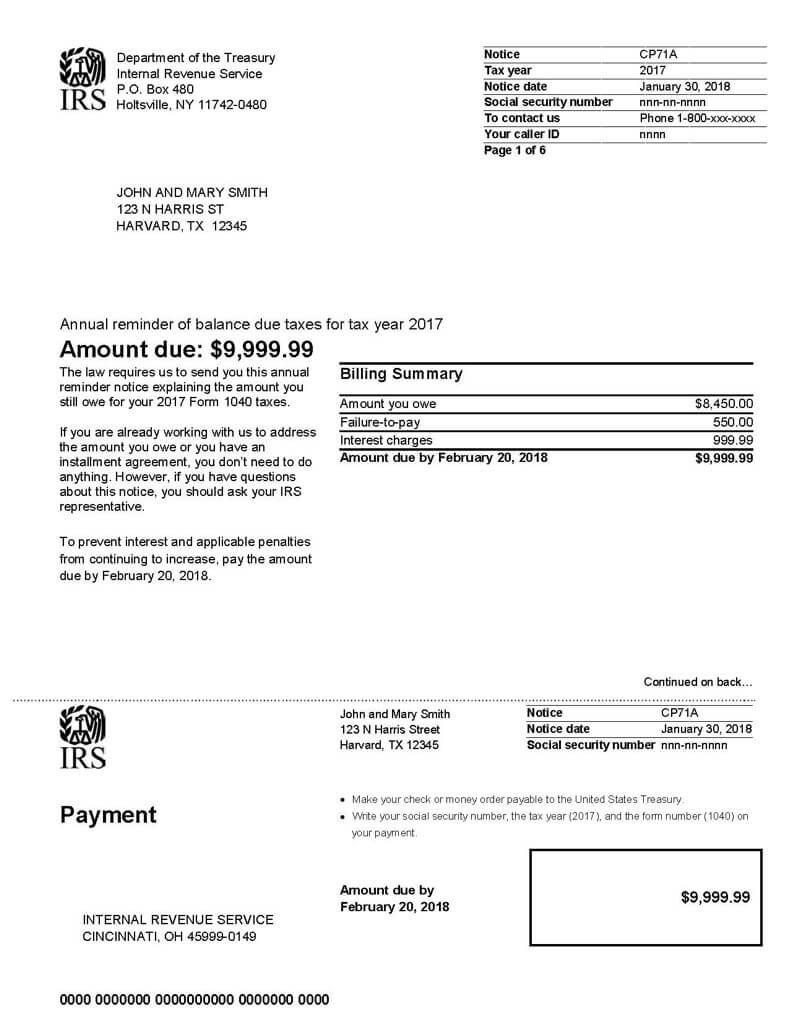- Find an office
-
File Your Taxes
 Find a Location
Find a Location -
Resolve Tax Issues
 Resolve Tax Issues
Resolve Tax IssuesResolve Tax Issues
-
Tax Resources
 See all Tax Help
See all Tax HelpTax Tools
Tax Tips & Resources
- Where's My Refund
- Refund Advance
- Hiring Local Jobs!
- Tax Services
- Promotions & Coupons
- Careers
- Search
- Contact Us
- Feedback
-
 Log in | Sign up
Log in | Sign up

JH Accounts
|
|
Oh no! We may not fully support the browser or device software you are using ! To experience our site in the best way possible, please update your browser or device software, or move over to another browser. |

We can help resolve your tax issues. Call (855) 580-9375 today.

IRS NOTICES: TAX DEBT
What is a CP71A notice?
IRS notices are letters sent to inform taxpayers of important tax information. Each one is different, but we can explain what the CP71A is about.
Understanding your CP71A notice
This notice is an annual summary of the IRS taxes, penalties, and interest you still owe the IRS.
If the IRS has determined your tax debt is currently non-collectible due to financial hardship, you do not need to do anything.
Type of Notice
Unpaid taxes
Why you received the CP71A notice
You received a CP71A notice because you owe the IRS taxes. If you are currently making payments or the IRS has notified you the debt is currently in a non-collectible status due to financial distress. No payment is currently due.
Likely next steps
As always, carefully read the notice, which will include the amount of taxes you still owe.
If you need help addressing your tax debt, you can contact a tax professional to learn more about your options.

Because trust, guarantees, convenience & money all matter

-
TRUSTED GUARANTEES.
Be 100% certain about your money & your taxes, year after year.
-
NATIONAL PRESENCE. LOCAL HEART.
We’re in your neighborhood & inside your favorite Walmart store.
-
40+ YEARS. 65+ MILLION RETURNS.
The kind of trusted expertise that comes with a lifetime of experience.






